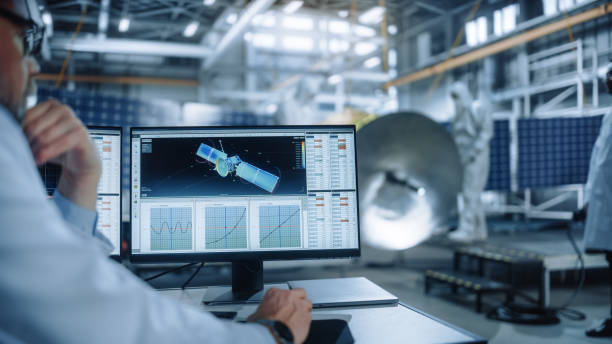Investing in space technology presents significant economic benefits for African economies, which can be seen through various lenses such as job creation, technological advancements, and increased global competitiveness. Space technology has the potential to be a major game-changer for African economies.
Here’s a breakdown of the economic benefits:
Job Creation

New Industries: Space programs and satellite development create new high-tech jobs in engineering, manufacturing, and data analysis.
Downstream Applications: The use of space tech in agriculture, resource management, and communication fosters innovation and entrepreneurship, creating jobs across various sectors.
Technological Advancements
Investment in space technology fosters technological progress in several ways:
Innovation: Space programs drive innovation in materials science, electronics, robotics, and computer sciences. These innovations often find applications in other industries.
Research and Development (R&D): Establishing space programs necessitates significant R&D investments, leading to the development of new technologies and methodologies.
Knowledge Transfer: Collaboration with international space agencies and companies can lead to the transfer of knowledge and expertise, enhancing local capabilities.
Increased Global Competitiveness

Resource Management: Earth observation satellites provide valuable data for monitoring natural resources, agriculture, and infrastructure. This allows for better decision-making and improved efficiency.
Communication Infrastructure: Satellite technology provides telecommunication services to remote areas, bridging the digital divide and promoting economic inclusion.
Global Recognition: A strong space program enhances a nation’s image on the global stage, attracting investments and partnerships.
Broader Economic Impacts
Agriculture
Precision Agriculture: Satellite imagery and GPS technologies enable precision farming, optimizing crop yields and reducing costs. This is crucial for food security and export competitiveness.
Monitoring and Management: Satellites help monitor crop health, soil conditions, and water usage, enhancing productivity and sustainability.
Disaster Management
Early Warning Systems: Satellites provide critical data for early warning systems, reducing the economic impact of natural disasters through timely interventions.
Resource Management: Earth observation satellites help in the efficient management of natural resources, mitigating the risks of disasters like droughts and floods.
Connectivity
Bridging the Digital Divide: Satellite technology can provide internet access to remote and underserved areas, promoting digital inclusion and economic development.
Telecommunications: Improved telecommunications infrastructure supports various sectors, including education, healthcare, and commerce.
Conclusion
Investing in space technology offers a high-risk, high-reward proposition for African economies. By overcoming the challenges and fostering a collaborative approach, African nations can leverage space tech to propel economic growth and social development.





Leave a Reply